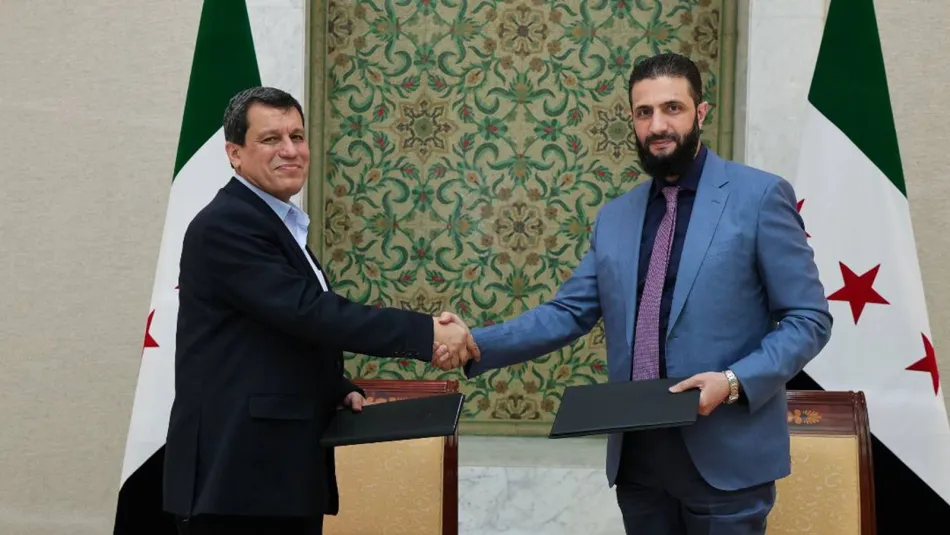In a surprising development, Mazloum Abdi, commander of the Syrian Democratic Forces (SDF), arrived in Damascus on Tuesday evening at the head of a delegation representing both the SDF and its political wing, the Syrian Democratic Council (SDC), according to sources cited by Al-Araby Al-Jadeed.
The visit is seen as a continuation of discussions over the landmark agreement signed in March 2025 between Abdi and Syrian President Ahmad al-Sharaa, which laid out a framework for reintegrating northeastern Syria into the central state.
International Pressure Behind the Visit
Sources revealed that the delegation’s visit came at the urging of the U.S.-led international coalition against ISIS, the main backer of the SDF. Talks are expected to focus on removing obstacles to implementing the agreement’s provisions, particularly the integration of SDF military and civil institutions into the Syrian state and the transfer of oil fields and border crossings to the central government.
While joint implementation committees have already been formed, the key terms of the agreement remain stalled. Skepticism continues to surround whether the agreement can be fully realized by the end of 2025.
Tensions Over Decentralization
Although the agreement was welcomed by both sides at the time of signing, tensions resurfaced in April, when a Kurdish political conference concluded by calling on the Syrian government to adopt decentralization as the administrative model for northeastern Syria. Damascus responded by rejecting what it saw as a push for territorial division, warning against any attempts to establish federal or autonomous entities without broad national consensus.
Despite this friction, Abdi reaffirmed that the March agreement remains valid and that both sides remain committed. He reiterated his movement’s support for decentralization but clarified that the term “federalism” was deliberately avoided, as it is not included in the agreement with President Sharaa.
“We are trying to protect the gains achieved through blood,” Abdi said, adding that decentralization does not mean secession. “The people of this region simply want to administer their local institutions.”
A Delicate Balancing Act
The agreement between Abdi and Sharaa, which had U.S. backing, aims to prevent future clashes between Kurdish-led forces and the central government by defining a political and military settlement. However, persistent mistrust, questions over oil revenues, and political sensitivities surrounding the nature of governance in Syria’s northeast continue to challenge its implementation.
With regional actors watching closely and the international coalition applying pressure, Abdi’s visit to Damascus could be pivotal in either reviving the stalled agreement or exposing its limitations in a post-conflict Syria still grappling with unity and legitimacy.
This article was translated and edited by The Syrian Observer. The Syrian Observer has not verified the content of this story. Responsibility for the information and views set out in this article lies entirely with the author.


